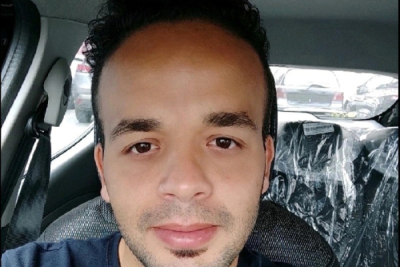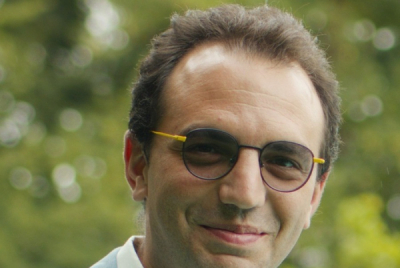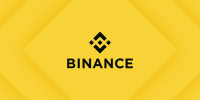- Algeria launches phased 5G rollout after issuing licenses to three operators
- Six-year plan starts with eight pilot provinces amid rising bandwidth demand
- High deployment costs and device affordability pose challenges to nationwide adoption
Algerian authorities on Wednesday officially launched 5G services, calling it a key step in modernizing the country’s telecommunications sector. The move marks the beginning of a phased rollout intended to boost the digital economy.
Telecom operators can now install their first 5G sites and prepare offers for both consumers and businesses. The government plans a deployment that will take place over six years under a national plan calling for gradual and balanced coverage. Eight provinces will serve as pilot zones before the network is extended nationwide.
The launch follows the awarding of 5G licenses last July to Mobilis, Djezzy and Ooredoo, a decision confirmed in the Official Gazette on Nov. 24. The licensing terms detailing the technical, financial and coverage requirements were published at the same time. The licenses cost 63.9 billion dinars, or about 492 million dollars.
Authorities say the introduction of 5G marks a new stage in the country’s connectivity as demand for bandwidth grows rapidly. The technology is expected to support the expansion of artificial intelligence, the Internet of Things, cloud computing and other advanced services. Sectors such as health, industry, education and smart mobility are expected to benefit. Tests conducted by Mobilis in February 2025 reached speeds of up to 1.2 gigabits per second.
Several questions remain, including how extensive coverage will be. According to a 2022 study by Ericsson, the base cost of deploying 5G in any country ranges between 3 billion and 8 billion dollars, with an additional investment of 20 percent to 35 percent required to expand coverage. This raises concerns that deployment in Algeria could favor more profitable urban areas while leaving rural regions behind.
Affordability is another challenge. According to a 2022 report by the GSMA, 5G-compatible smartphones start at around 150 dollars from several manufacturers, a price still inaccessible for many African consumers, especially when upfront payment is required. The organization estimates that device financing programs will likely be needed to make these phones affordable and help drive 5G adoption.
Isaac K. Kassouwi
The fintech platform presents itself as ‘the professional account for the ambitious’ and provides essential tools for entrepreneurs.
Zazu is a digital fintech platform developed by a South African startup. It positions itself as an innovative financial management tool for African entrepreneurs, freelancers and small and medium-sized enterprises.
Users can open a business account in minutes from their smartphone, without visiting a bank, and access a range of tools to manage cash flow, invoicing, expenses and accounting. The Cape Town-based startup was founded in 2024 by Germain Bahri and Rinse Jacobs.
The platform includes features such as online account opening, invoice management, expense tracking, cash flow tools, instant payments and transfers, and payment cards. For entrepreneurs, this means bringing all financial operations together in a single digital interface without paperwork.
"Zazu is founded with the idea of making banking better for African founders and SMEs by providing them with a powerful bank account at the core, combined with invoicing, bookkeeping and cash flow management tools - making banking feel less like an obstacle and more like a catalyst for growth," the startup said.
For small businesses, freelancers and startups, Zazu automates routine administrative tasks. The company says this allows entrepreneurs to focus on growing their business instead of being bogged down by accounting paperwork.
By combining a business account, financial management and invoicing in one platform, the application aims to reduce administrative burdens and improve operational efficiency.
Zazu recently raised 1 million dollars in pre-seed funding to accelerate its rollout in South Africa and Morocco.
Adoni Conrad Quenum
In Kenya, E-tiba is emerging as a comprehensive digital solution to simplify access to home-based healthcare.
E-tiba is a digital health platform developed by a Kenyan startup. Through a mobile app, a website and a USSD code, the platform connects patients with qualified caregivers including nurses, nursing aides, therapists and support staff for one-off or regular home visits.
The Nairobi-based startup was founded in 2018 by Loise Wanjiku Ngugi.
E-tiba’s services range from standard nursing care, such as wound dressing, infusions and medication management, to more specialized support, including palliative care, chronic disease management and rehabilitation. The platform also offers practical assistance such as meal preparation, transport to medical appointments and mobility support.
Appointments are booked online, and users can view the qualifications of each caregiver, which the company says helps build trust and strengthens continuity of care.
In addition to connecting patients and providers, E-tiba also has a training component. The E-tiba Training College and an e-learning platform offer courses in basic patient care, community health assistance, dementia care and other fields. According to the company, this helps professionalize caregivers and ensure consistent quality standards.
This combined service and training model aims to improve patient safety while creating formal employment opportunities in the home-care sector.
For patients and their families, E-tiba brings greater comfort and continuity of care, including fewer trips to clinics, personalized support and access to trained providers. For the wider health system, the platform could help ease pressure on facilities by enabling safe and appropriate home-based care.
Adoni Conrad Quenum
- AfDB grants €17.7 m loan to advance Cape Verde’s e-governance reforms
- Program boosts digital business environment and modernizes public finance systems
- Measures target growth, transparency, and stronger private-sector competitiveness
The African Development Bank (AfDB) on Monday approved a 17.71 million euro ($20.63 million) loan for the second phase of Cape Verde's E-Governance and Public Financial Management Reform Program.
The bank said the funding is designed to stimulate economic growth through digitization while strengthening private sector competitiveness. It follows financing approved in 2024 and is intended to enable the Cape Verdean government to deepen its structural reforms.
According to Abdoulaye Coulibaly, director of the AfDB's Governance and Economic Reform Department, this initiative also aims to "stimulate economic growth through digitization and private sector competitiveness, while advancing e-governance reforms, to modernize public administration and sanitize public finances."
The first component of the program concerns improving the business environment via digital solutions. The country plans to introduce an e-Justice system, launch a call for proposals to attract operators to the technology park, and regulate the settlement of digital nomads, a strategic segment for Cape Verde's economy.
The second component involves modernizing public finances. The government will publish an action plan to reduce tax expenditures, strengthen budget transparency and improve the efficiency of public resource management. The funding will also support a public expenditure review scheduled for early 2026.
The main beneficiaries of this program include the Ministry of the Digital Economy, the Central Bank of Cape Verde, the Institute for Gender Equality, the National Revenue Directorate, and the Public Procurement Regulatory Authority.
Adoni Conrad Quenum
-
Bricoram, founded in 2023, connects Algerian consumers with professionals across more than 100 service categories.
-
The platform operates free-of-charge for clients and prioritizes rapid matching based on geography and declared skills.
-
Founder Younes Chaoui, an AI specialist, previously worked for Kostango, IDEX and Deloitte.
Younes Chaoui, an Algerian computer scientist specialized in artificial intelligence, founded Bricoram after he observed consumers’ persistent difficulty finding reliable service providers. He created the platform to align with daily usage habits and deliver a simple digital access point for household services.
Chaoui launched Bricoram in 2023 to connect households seeking services with qualified professionals. The platform lists more than 100 categories, initially focusing on everyday needs such as plumbing while progressively opening to additional trades.
Bricoram operates free for clients. It allows users to post requests, receive offers from professionals, and select the preferred proposal. After a client submits a request, Bricoram automatically notifies nearby providers. Professionals then send offers, which clients receive via email, SMS and app notification. Users can compare profiles, speak with providers by phone, WhatsApp or internal chat, and post a review after completion.
The platform positions itself as a visibility and business-development tool for professionals. Providers open an account and complete a detailed profile describing their activity, services, portfolio and a photo. Bricoram then channels incoming requests according to the professional’s declared services and geographic coverage.
Chaoui holds a master’s degree in artificial intelligence from the University of Science and Technology Houari Boumediène in Algeria (2015). He also earned a master’s degree in decision computer science from Blaise Pascal University in France in 2016.
He began his career in 2016 as technical director at Kostango, a French digital operations-management platform. In 2023, he joined IDEX as a Django consultant before moving to Deloitte, where he worked as an Angular consultant until 2024.
This article was initially published in French by Melchior Koba
Adapted in English by Ange Jason Quenum
-
Tanit AI, founded in 2024, provides an AI-driven digital platform that supports individuals and couples through fertility treatments.
-
The platform uses a specialized AI assistant to decode medical information, track treatment steps and facilitate communication with healthcare providers.
-
Founder Kaïs Zhioua also serves as strategy director at Fertillia and at Clinique La Rose, bringing sector expertise to the startup.
Kaïs Zhioua, a Tunisian entrepreneur and founder of Tanit Healthcare Technologies (Tanit AI), created a digital tool that follows fertility-treatment steps and aims to make the path to parenthood simpler and more predictable. He positions Tanit AI as a “personal companion toward parenthood” powered by artificial intelligence.
Zhioua founded Tanit AI in 2024 as a fertility-focused digital platform that supports individuals and couples from the exploration of options through treatment and potential complications. The platform integrates a fertility-specialized AI assistant that decodes medical information, tracks care pathways and clarifies proposed treatments.
The assistant explains fertility concepts, outlines possible causes of infertility and presents available diagnostic or treatment options. It facilitates conversations with healthcare professionals and supports informed decision-making. The platform guides users throughout treatment by helping them determine when to begin, follow protocols and manage unexpected events.
Tanit AI also provides markers to help users understand where they stand in their journey, consolidate medical information and anticipate next steps.
Zhioua simultaneously serves as strategy director at Fertillia, a Tunisian company specialized in assisted reproduction, and as director of strategy and innovation at Clinique La Rose in Tunis. He previously founded Careways in 2016, a digital tool dedicated to medical tourism.
He graduated from the Mediterranean School of Business with a bachelor’s degree in business administration in 2013 and earned a master’s degree in entrepreneurship from Zhejiang University in China in 2015.
This article was initially published in French by Melchior Koba
Adapted in English by Ange Jason Quenum
- Gigmile deploys more than 10,000 vehicles across several Ghanaian cities under its lease-to-own mobility model.
- The platform targets informal gig workers with flexible payments aligned to fluctuating income.
- The start-up integrates financing, mobility and financial inclusion to expand access to productive assets.
Ghana’s Gigmile positions itself as an innovative platform that merges fintech and mobility to address a pressing African challenge: enabling informal-economy workers—delivery riders, drivers and couriers—to access vehicles without the traditional barriers of credit checks or prior savings.
Gigmile is a digital solution developed by a Ghanaian start-up. The company provides a lease-to-own financing model through its flagship service, Gamma Mobility. The model adapts to gig workers’ fluctuating earnings. It offers flexible payments aligned with projected income and includes maintenance, insurance and required documentation. Founders Kayode Adeyinka and Samuel Esiri created the Accra-based start-up in 2022.
The company states that “thanks to partnerships with equipment suppliers and financial institutions, Gigmile offers automotive financing solutions with purchase options to disadvantaged informal workers in the logistics and transport sector.”
Workers can acquire a motorcycle, a tricycle or a car, use the vehicle for delivery or transport platforms, generate income and repay the asset gradually. Ownership transfers to the user once the plan ends. This approach converts an otherwise inaccessible productive asset into a tool for economic inclusion.
Recent figures indicate the scale of the model. The platform has deployed more than 10,000 vehicles across multiple cities, activated thousands of workers and enabled several hundred users to acquire their vehicles. A high repayment rate and intensive vehicle use confirm the viability of the model.
Gigmile aims to build financial inclusion and employability alongside mobility provision. By granting access to a productive asset, the company offers an alternative to precarious informal work, opens a pathway to entrepreneurship and supports an economic segment often unreachable through traditional banking channels.
In essence, Gigmile shows how an African fintech can combine technology, inclusive financing and mobility to create long-term opportunities. By democratizing access to vehicles, the platform reshapes access to work, autonomy and economic dignity for millions of workers across the continent.
This article was initially published in French by Adoni Conrad Quenum
Adapted in English by Ange Jason Quenum
Binance has launched Binance Junior, a new sub-account app that lets parents oversee activity while allowing children and teenagers to save in cryptocurrencies. The app offers a flexible savings feature with no trading, enabling young users to accumulate digital assets under parental supervision. Parents can fund the account, set limits and monitor all activity. The platform also includes an educational book, “ABC’s of Crypto,” designed to help families learn about digital finance together.
Nigerian startup Gigmile, founded in 2022, has closed a funding round led by Enza Capital, with participation from Seedstars International Ventures and Norrsken Africa Fund, to support its next phase of expansion. Through its Gamma Mobility rent-to-own model, Gigmile has already provided more than 10,000 vehicles to delivery agents and drivers in Nigeria and Ghana. The company aims to finance $100 million in assets by 2027.
Credit Direct, a Nigerian financial institution, has integrated “Yield” into its mobile app, adding automated savings and investment tools. The platform offers annual returns of up to 21% on fixed-term deposits and 15% on flexible plans. After a simple setup, users can access clear, fully digital products with features such as real-time account management, scheduled contributions and the option to send investment “gifts” to others.
More...
The Judith Neilson Foundation and the Million Lives Collective have launched a new African Cities Innovation Fund. It will provide grants of up to $75,000 for projects linking startups, civic groups and public-sector partners.
The goal is to test digital and infrastructure solutions for mobility, basic services and climate resilience in fast-growing African cities.
The Egyptian platform Taager, which allows thousands of independent sellers to run online businesses without holding inventory or upfront capital, has launched operations in Morocco after earlier rollouts in Egypt, Saudi Arabia and the United Arab Emirates. The Moroccan arm, led by Salma Ammor, aims to tap into the country’s fast-growing e-commerce market and make it easier for more people to start selling online.
-
Hit The Road Today, founded in 2024, centralizes accommodation, food services and activities to help travelers plan road-trips across South Africa.
-
The platform operates as a booking and matchmaking tool for travelers and tourism providers, who can register to offer their services.
-
CEO Daniel Adidwa also leads Tour2.0 and The Adidwa Group, adding tourism-sector experience and entrepreneurial background to the project.
He aims to offer travelers a memorable and distinctive experience. He develops a tool focused on route preparation and access to services along the road.
Daniel Adidwa, a South African entrepreneur, serves as co-founder and chief executive officer of Hit The Road Today, an online travel platform positioned around road-trip experiences in the country.
Founded in 2024, Hit The Road Today presents itself as a portal for travelers who want to plan journeys across South Africa by road. The platform supports the preparation of each stage of a road-trip, including accommodation, food and activities, by gathering the relevant services in a single space.
From the homepage, users enter a starting point and a destination. The site then proposes selections of places to sleep, eat or explore along the way. The platform aims to centralize available options and reduce the need for travelers to switch between multiple platforms.
Hit The Road Today functions as a matchmaking and booking tool. It allows travelers to reserve accommodation, meals or activities. It also enables tourism providers to register as suppliers and offer their services to users.
Alongside this project, Adidwa serves as director of Tour2.0, a provider of urban, cultural and community-based tourism experiences in South Africa. He also leads The Adidwa Group, a company active in trade and international development that he founded in 2019.
He graduated from the AAA School of Advertising, where he earned a marketing degree in 2009. He joined J. Walter Thompson Worldwide in 2010 as an account manager for Nestlé Chocolates & Ice Cream. In 2015, he became vice-chair of the youth steering committee of RETOSA in Johannesburg. Between 2021 and 2023, he served as South Africa lead for the British Council’s Innovation for African Universities programme.
This article was initially published in French by Melchior Koba
Adapted in English by Ange Jason Quenum
-
Adjunct, founded in 2024, develops an AI assistant that automates legal research and compliance tasks for South African lawyers.
-
The platform identifies relevant legal documents from public databases and, when authorized, from internal firm resources, then produces structured, source-referenced outputs.
-
Co-founder and CEO Alessandro Scarcella previously worked as a data scientist and machine-learning engineer in several South African tech companies.
He targets a core segment of legal work through artificial intelligence. His innovation aims to transform how legal professionals access information and manage case files.
Alessandro Scarcella, an entrepreneur and artificial intelligence engineer based in Johannesburg, serves as the co-founder and chief executive officer of Adjunct, a start-up that develops an AI assistant for South African lawyers.
Adjunct, which Scarcella and chief operating officer Julia Ramsunder founded in 2024, supports legal practitioners in their research, their compliance duties and their management of judicial procedures. The platform primarily addresses professionals operating in South Africa and uses legislation and court decisions drawn from the national legal framework.
The tool automates a share of routine work inside law firms or legal departments, and it frees time for analysis and strategic advice. It does not replace legal reasoning, and it operates as a support system for information processing.
Users start by submitting a question in natural language. The request may be a precise query, a list of issues or notes taken during a meeting. Based on this initial input, the assistant may ask follow-up questions to clarify the need and direct the search.
Once the request is defined, Adjunct identifies relevant documents in public databases and, when authorized, in the internal resources of a firm or organization. The tool then generates a structured response grounded in these sources and returns it with precise citations to allow verification.
The platform connects to several types of legal content, including national legislation and case law. The company plans to integrate additional categories, such as provincial laws, regulations and local administrative orders.
Scarcella graduated from the University of Cape Town, where he earned a bachelor’s degree in finance in 2014 and a master’s degree in machine learning and statistics in 2016. He built his career in several technology companies before launching his start-up.
He joined Cortex Logic in 2017 as a data scientist and became a machine-learning engineer in 2019. He moved to the online delivery service Mr D Food in 2022, where he worked as a data scientist until 2024.
This article was initially published in French by Melchior Koba
Adapted in English by Ange Jason Quenum















